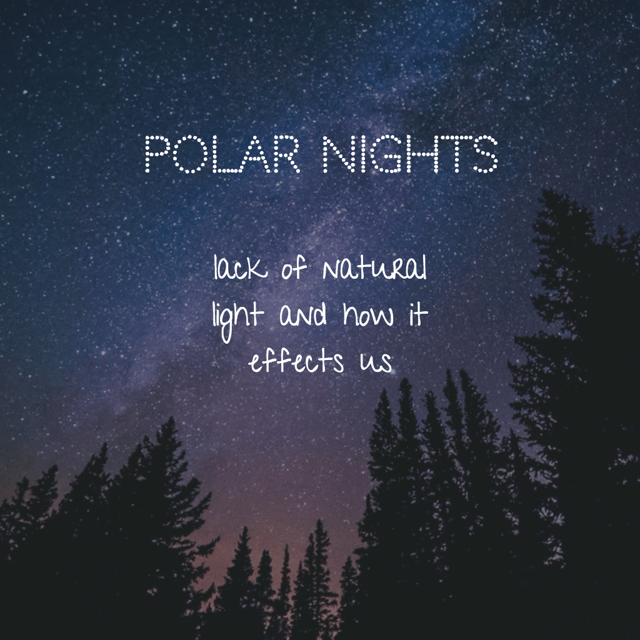
Many adults report feeling sluggish with daytime sleepiness during the winter. But does this mean you actually need more sleep during the winter, or is a sign of something else?
Possible effects of Polar Nights may include:
- Feelings of sadness
- Detachment from people and activities
- Lack of energy
- Difficulty concentrating
- Sleeping more than usual
- Difficulty staying awake
- Cravings for carbohydrates and weight gain
Managing the effects of Polar Nights:
- Stay active and maintain your daily schedule
- Eat a balanced diet and reduce consumption of simple carbohydrates
- Exercise
- Develop a support network and spend time with family and friends
- Consider specialized lighting to simulate outdoors but only with permission from your doctor
The only way to perk back up is to get back outside. Spend as much time in the sun just after waking as possible. Sun exposure tells your body it’s time to be awake. If you have to go to work before the sun rises, consider purchasing a light box, which can simulate sunlight and help you wake up while it’s still dark. Vitamin D supplements can also provide a boost in energy and prevent feelings of tiredness during the winter. Even the sun’s levels of vitamin D are lower during the winter. Just make sure you purchase a high-quality supplement from a source you trust and okay it with your doctor.
When you do go to bed at night, don’t distract yourself with electronics, as this can disrupt your sleep/wake cycle. Go straight to bed and turn out the light. You’ll probably feel a lot less sleepy in the morning. Aim to get between eight and nine hours of sleep each night to fight winter fatigue. Also, try the the 10-3-2-1-0 formula suggested sleep tips to help with your sleep hygiene and excessive sleepiness.
Snowy days, warm beds, cold nights and dark mornings make it easy to linger in bed. Our bodies are programmed to want to sleep when it’s dark and to be awake during the day. Fewer daylight hours mean our bodies naturally want to hibernate a little, just like bears. However, if you find yourself sleeping a lot and still feeling tired, there may be something else going on. Be sure to make sure you are getting quality sleep.
ANCSLEEP BLOG- Good Sleep Starts Here

